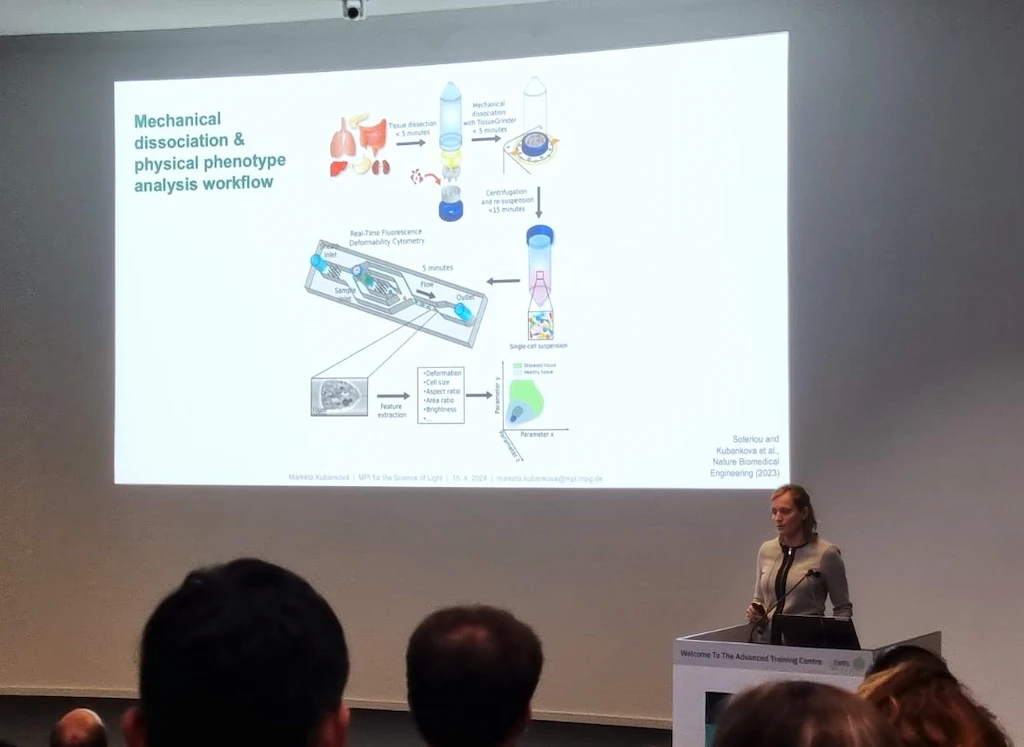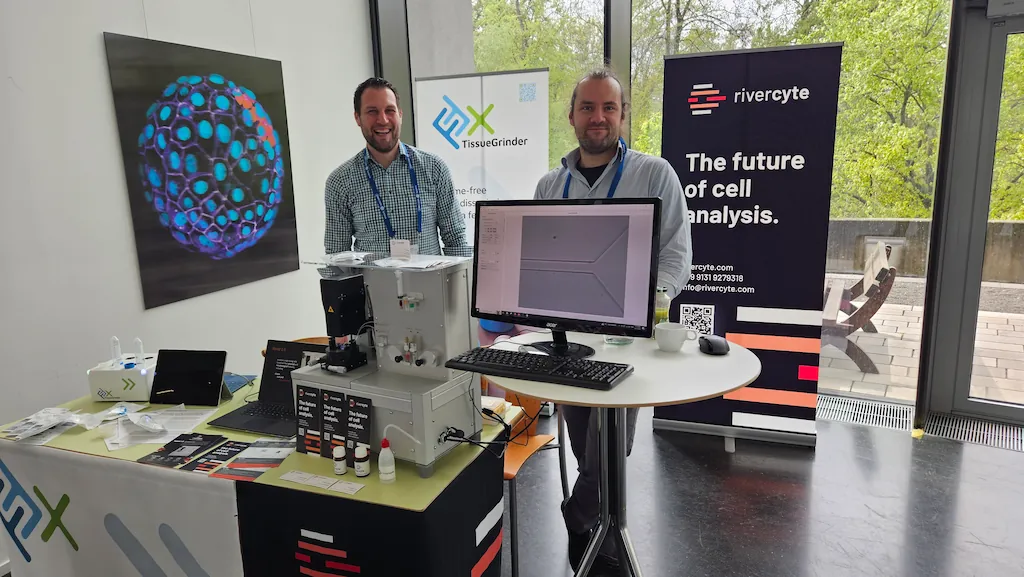Rivercyte showcases the Naiad at the “Mechanics of Life” symposium at EMBL Heidelberg
2024-04-18Rivercyte showcased their Naiad device at the "Mechanics of Life" symposium at EMBL Heidelberg, demonstrating their deformability cytometry technology. The symposium, focused on the role of mechanical forces from molecules to organs in development and disease, was attended by an interdisciplinary audience. Rivercyte cofounders Martin Kräter and Markéta Kubánková presented projects on deformability cytometry, including a method for diagnosing colon cancer biopsies using AI and TissueGrinder.
Rivercyte presented the Naiad device at the “Mechanics of Life” symposium at EMBL Heidelberg, showcasing our deformability cytometry technology at a joint stand with Fast Forward Discoveries.
The symposium was centered around the interplay of the physical forces between the fundamental building blocks of life, from molecules to organs. The scientific sessions focused on the role of mechanical forces in both development and disease, with an interdisciplinary audience of clinicians, cell and developmental biologists, and physical and material scientists, from in silico to in vitro and to in vivo studies. As such, this was a perfect setting for presenting the Naiad, an instrument allowing the measurement of cell mechanics and other physical properties of cells in health and disease.


Rivercyte cofounders Martin Kräter and Markéta Kubánková also participated in the scientific sessions, both presenting projects based on deformability cytometry. Marketa's talk “Single-cell physical phenotyping of mechanically dissociated tissue biopsies for fast diagnostic assessment” covered an analysis pipeline consisting of deformability cytometry, TissueGrinder and AI. The team from Max Planck Institute for the Science of Light and University Hospital Erlangen developed this method for the accurate detection of pathological tissue in colon cancer biopsies.
